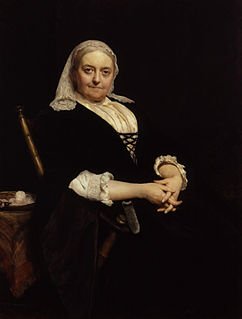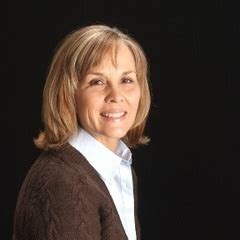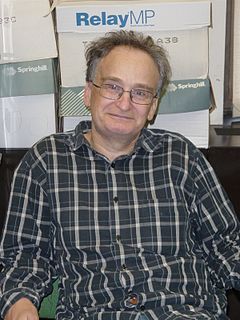A Quote by Brandon Sanderson
Faith isn't about logic, son," Haddek said. "Perhaps that's your problem. You cannot 'disprove' the things you study, any more than we can prove to you that the Hero will save us. We simply must believe it, and accept the things Preservation has taught us.
Related Quotes
Let me give you a hint, young ones, what it is you will become as you grow. What things make you cry, what things bring you pain, what things hurt you now, what things threaten your peace; what things you fear, what things bring you rage. It will be the opposite of these that you will become if you chose to accept your weakness, embrace the Son and simply grow.
Perhaps because the origins of a certain kind of love lie in an impulse to escape ourselves and out weaknesses by an alliance with the beautiful and noble. But if the loved ones love us back, we are forced to return to ourselves, and are hence reminded of the things that had driven us into love in the first place. Perhaps it was not love we wanted after all, perhaps it was simply someone in whom to believe, but how can we continue to believe the the beloved now that they believe in us?
Facts are certainly the solid and true foundation of all sectors of nature study ... Reasoning must never find itself contradicting definite facts; but reasoning must allow us to distinguish, among facts that have been reported, those that we can fully believe, those that are questionable, and those that are false. It will not allow us to lend faith to those that are directly contrary to others whose certainty is known to us; it will not allow us to accept as true those that fly in the face of unquestionable principles.
We all have weak moments, moments where we lose faith, but it's our flaws, our weaknesses that make us human. Science now performs miracles like the gods of old, creating life from blood cells or bacteria, or a spark of metal. But they're perfect creatures and in that way they couldn't be less human. There are things machines will never do, they cannot possess faith, they cannot commune with God. They cannot appreciate beauty, they cannot create art. If they ever learn these things, they won't have to destroy us, they'll be us.
I believe art is utterly important. It is one of the things that could save us. We don't have to rely totally on experience if we can do things in our imagination.... It's the only way in which you can live more lives than your own. You can escape your own time, your own sensibility, your own narrowness of vision.
Theologians talk about a prevenient grace that precedes grace itself and allows us to accept it. I think there must also be a prevenient courage that allows us to be brave - that is, to acknowledge that there is more beauty than our eyes can bear, that precious things have been put into our hands and to do nothing to honor them is to do great harm. And therefore, this courage allows us, as the old men said, to make ourselves useful. It allows us to be generous, which is another way of saying exactly the same thing.
I believe if any of these candidates really understood that America is in the crosshairs of God, and that America will never be made great again. None of them will be able to lift America up but letting the Black man go and giving us justice that will save America... I am almost sure that if they don't do that, it will be said: "We must get rid of Farrakhan." And that will bring about the destruction of America even more quickly.





































